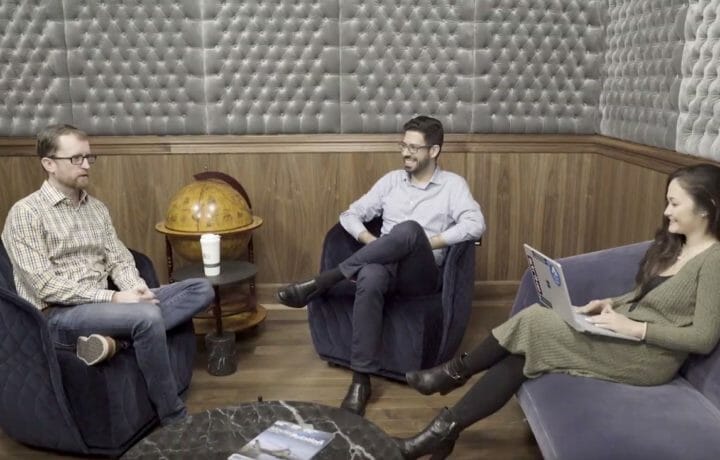The majority of hiring managers struggle to find qualified, entry-level tech talent. Retaining those workers once they’re attracted is just as difficult. Microsoft thinks it can help.
Last week U.S. Marine Corps Major General Chris Cortez (retired), vice president of Microsoft Military Affairs, shared some insight on the company’s sponsored YouGov survey, which provided insight on hiring managers changing perception of veteran hires. The study was released to coincide with this week’s Veterans Day and November’s Month of the Military Family.
Microsoft Military Affairs team found that 87% percent of hiring managers now believe that corporate-sponsored IT reskilling programs, such as Microsoft Software and Systems Academy (MSSA), can be more valuable than traditional college paths for those veterans seeking a technology-related career. MSSA was designed to provide transitioning service members and veterans help to find technical and soft skills in the tech sector.
MSSA was launched in 2013, and currently provides an 18-week (or two nine-week) terms of training for high-demand careers in cloud development, cloud administration, cybersecurity administration or database and business intelligence administration. Program graduates even are offered the opportunity to interview for a full-time job at Microsoft or one of its hiring partners.
Post Military Transition
For veterans, making the transition to a civilian career can be challenging, which is why reskilling programs are now becoming a way to bridge the skill gap. Currently there are around 200,000 service members who are transitioning out of the military each year, and hiring managers see the potential these individuals can bring.
Veteran unemployment has decreased over the past decade, but vets are still more likely to be underemployed than nonveterans. However, once employed in a good job, veterans tend to remain with their initial company longer, and are also more likely to be promoted earlier than nonveterans. Veterans are also more likely to have a graduate degree or higher, and have more work experience, on average, than nonveterans.
“When we started exploring how Microsoft could better integrate transitioning veterans into the technology field, we were surprised to learn there were very few opportunities for veterans to acquire these in-demand IT skills as part of the transition process,” said Cortez.
“Without that support, long-term, high-earning careers are harder to come by,” Cortez told ClearanceJobs. “But that’s a problem we, the private sector, can help solve by deliberately creating opportunities to reskill outside of a four-year degree.”
With the right reskilling these individuals can find good paying jobs in the field of information technology (IT). According to the YouGov/Microsoft study, almost 70% of IT hiring managers said that it is challenging to hire qualified entry-level IT staff, while 72% say it is even harder to retain tech talent. More than one-third of IT hiring managers said Server and Cloud Administration and Cloud Application Development skills are some of the hardest to find in job candidates.
It would seem that IT hiring managers could simply look to those 200,000 service members – but unfortunately this often isn’t the case. According to research conducted by Duke University’s Fuqua School of Business earlier this year, veteran candidates are too often typecast as “agentic and unemotional.” As a result they are likely to be overlooked for jobs that leverage emotional intelligence and interpersonal and leadership skills. Veterans who are found to have the right interpersonal or leadership skills may be overlooked for a technical position because they haven’t pursued a traditional four-year degree program.
This could be where programs such as MSSA could change perceptions and get the veterans the skills needed for a new career, rather than just the next job. The YouGov survey found that in many cases hiring managers had a positive experience working with veterans and 73% said veterans value teamwork more than their peers.
Cortez and MSSA have called up companies – particularly those that champion diverse perspectives – to think more broadly about how veterans could contribute to corporate cultures, but more importantly about how we can give them the tools to succeed.
MSSA Opportunities
Microsoft is committed to helping re-skill workers in part because it has seen what the results offer. The retention rate among MSSA-trained veterans is greater than 80% after two years. MSSA attributes this success to its holistic approach. Its program has 14 locations across the nation, with the capacity to graduate 1,000 participants each year. This program offers not only the training in IT, but also in the necessary soft-skills that include interview prep, resume writing and mentorship.
MSSA’s Cortez also noted that education and skills training are not a one-size-fits-all, instead the program is about creating new avenues for people of diverse backgrounds to gain the skills needed to participate in today’s increasingly high-tech world.
“Our country needs non-traditional training and hiring programs to provide the necessary scale to help veterans obtain civilian jobs,” Cortez explained. “From our experience, technology careers are incredibly valuable. And, reskilling veterans for technology careers sets them up for long-term success.”




